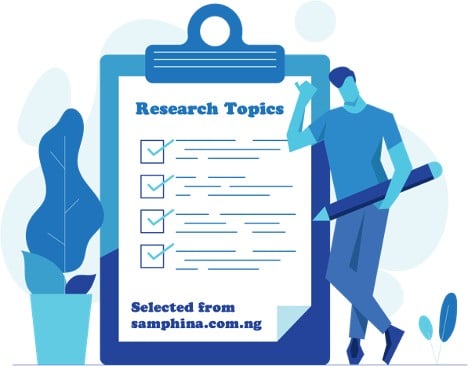
In social research, it is usual to distinguish between primary and secondary data and qualitative and quantitative data. Quantitative data refers to information that appears in numerical form, or the form of statistics.
Qualitative data refers to information that appears in written, visual or audio form, such as transcripts of interviews, newspapers, and websites. (It is possible to analyze qualitative data and display features of it numerically!)
Secondary data is data that has been collected by previous researchers or organizations such as the government. Quantitative sources of secondary data include official government statistics and qualitative sources are very numerous including government reports, newspapers, and personal documents such as diaries as well as the staggering amount of audio-visual content available online.
Primary data is data collected firsthand by the researcher herself. If a sociologist is conducting her unique sociological research, she will normally have specific research questions she wants to be answered and thus specific research methods to get the data she wants. The main methods sociologists use to generate primary data include social surveys (normally using questionnaires), interviews, experiments, and observations.
Social Surveys – are typically structured questionnaires designed to collect information from large numbers of people in a standardized form. Social Surveys are written in advance by the researcher and tend to be pre-coded and have a limited number of closed questions and tend to focus on relatively simple topics. A good example is the UK National Census. Social Surveys can be administered (carried out) in several different ways – they might be self-completion (completed by the respondents themselves) or they might take the form of a structured interview on the high street, as is the case with some market research.
Experiments – aim to measure as precisely as possible the effect which one variable has on another, aiming to establish cause and effect relationships between variables.
Experiments typically start with a hypothesis – a theory or explanation made based on limited evidence as a starting point for further investigation, and will typically take the form of a testable statement about the effect that one or more independent variables will have on the dependent variable. A good experiment will be designed in such a way that objective cause and effect relationships can be established so that the original hypothesis can be verified, rejected, and modified.
There are two types of the experiment – laboratory and field experiments – A laboratory experiment takes place in a controlled environment, such as a laboratory, whereas a field experiment takes place in a real-life setting such as a classroom, workplace place, or even the high street.
Interviews – A method of gathering information by asking questions orally, either face to face or by telephone.
Ethnographies and Case Studies
Ethnographies are an in-depth study of the way of life of a group of people in their natural setting. They are typically very in-depth and long-term and aim for a full (or ‘thick’), multi-layered account of the culture of a group of people or see a problem or interesting pattern, and set out to study it. They use research methods to design a study.
List of Best of Sociology and Anthropology Project Topics
- CAUSES AND EFFECTS OF COMMUNICATION BREAKDOWN IN AN ORGANIZATION (A case study of champions’ breweries Uyo Akwa Ibom State)
- CONFLICT MANAGEMENT IN THE NIGER DELTA (A CASE STUDY OF THE AMNESTY PROGRAMME)
- CORRUPTION IN NIGERIA; A THREAT TO SUSTAINABLE ECONOMIC DEVELOPMENT
- THE EFFECT OF EMPLOYEE PARTICIPATION ON ORGANIZATIONAL PERFORMANCE
- THE IMPACT OF ORGANIZATIONAL CULTURE ON EFFECTIVE EMPLOYEES’ PERFORMANCE TOWARDS THE ATTAINMENT OF THE ORGANIZATION GOALS
- THE ROLE OF NON-GOVERNMENTAL ORGANIZATIONS IN PEACEBUILDING IN MAIDUGURI (A CASE STUDY OF ACTION AID INTERNATIONAL NIGERIA)
- UN PEACEKEEPING IN AFRICA: EFFECTIVENESS AND PROBLEMS
- THE EFFECT OF STREET HAWKING AMONG TEENAGE GIRLS IN NIGERIA
- AN ANALYTICAL STUDY GENDER DISCRIMINATION IN MANAGEMENT POSITION: A STUDY OF SELECTED MANUFACTURING INDUSTRIES IN LAGOS STATE, NIGERIA.
- THE INFLUENCE OF MARITAL ROLES AND CAREER AMONG FEMALE ACADEMICS IN SELECTED UNIVERSITIES IN LAGOS AND OGUN STATE
- EXAMINING THE RELATIONSHIP BETWEEN REPRODUCTIVE HEALTH KNOWLEDGE AND UNSAFE INDUCED ABORTION AMONG FEMALE ADOLESCENTS IN SELECTED COMMUNITIES IN BADAGRY, LAGOS STATE, NIGERIA
- RURAL WOMEN AND HOUSEHOLD FOOD SECURITY IN ESAN WEST LOCAL GOVERNMENT AREA OF EDO STATE, NIGERIA.
- CAUSES AND EFFECTS OF COMMERCIAL SEX WORK AMONG AKWA IBOM GIRLS (A STUDY OF YOUTHS IN UYO LOCAL GOVERNMENT AREA)
- SOCIO-CULTURAL IMPACT OF CHILDLESSNESS OF MARRIED COUPLES IN NIGERIA
- EFFECTIVENESS OF INVENTORY MANAGEMENT IN A MANUFACTURING COMPANY (A CASE STUDY OF AMA GREENFIELD BREWERIES PLC, ENUGU, NIGERIA)
- KNOWLEDGE AND ATTITUDE OF UNDERGRADUATE STUDENTS TOWARDS HOMOSEXUALITY AND ITS IMPLICATION ON SOCIAL ADJUSTMENT
- SOCIO-ECONOMIC AND CULTURAL FACTORS MILITATING AGAINST COMMUNITY DEVELOPMENT IN IDEA TO LOCAL GOVERNMENT AREA OF IMO STATE.
- ASSESSING THE CONTRIBUTIONS OF WOMEN ORGANISATIONS IN COMMUNITY DEVELOPMENT IN NIGERIA. CASE STUDY: MBAISE LOCAL GOVERNMENT AREA OF IMO STATE.
- ASSESSING THE DETERMINANTS OF INDUCED ABORTION AMONG UNDERGRADUATE STUDENTS: A STUDY OF UNIVERSITY OF CALABAR, CROSS RIVER STATE NIGERIA
- ASSESSING THE EFFECT OF DRUG ABUSE AMONG UNIVERSITY UNDERGRADUATES
- THE ROLE OF NON-GOVERNMENTAL ORGANIZATIONS IN PEACEBUILDING IN MAIDUGURI (A CASE STUDY OF ACTION AID INTERNATIONAL NIGERIA)
- EFFECT OF GLOBALISATION ON NATIONAL SECURITY
- MULTINATIONAL COMPANIES AND THEIR SOCIAL RESPONSIBILITIES IN THEIR HOST COMMUNITIES
- SECTARIAN CRISES IN NORTHERN NIGERIA: THE CASE STUDY OF KANO AND KADUNA STATES
- REHABILITATION OF EX-CULTISTS IN TERTIARY INSTITUTIONS
- THE NIGER DELTA CRISIS: IT’S IMPACT ON NIGERIAN’S NATIONAL SECURITY
- THE ROLE OF THE FAMILY IN PREVENTION OF HIV/AIDS AMONG YOUTHS IN THE SOCIETY: A CASE STUDY OF OSHIMILI SOUTH LOCAL GOVERNMENT AREA OF DELTA STATE
- EFFECT OF SOCIOECONOMIC STATUS AND SEX ON ATTITUDE TOWARDS CRIME
- The impact of social media on political participation
- A comparative analysis of educational systems across different cultures
- An examination of the causes and effects of poverty in modern society
- Understanding the relationship between religion and social norms
- The effects of globalization on cultural identity and diversity
- Investigating the social and cultural factors that contribute to mental health issues
- The role of gender in shaping social norms and expectations
- An analysis of the impact of immigration on cultural assimilation and identity
- Exploring the dynamics of social change and resistance movements
- The impact of social class on educational achievement and opportunities
- Understanding the impact of media on body image and self-esteem
- An analysis of the relationship between race and ethnicity in modern society
- Investigating the effects of stereotypes on social interactions and perceptions
- A comparative study of family structures across different cultures and time periods
- Examining the relationship between politics and the media in shaping public opinion
- An analysis of the effects of technology on social interaction and communication
- The role of religion in shaping political and social movements
- Understanding the impact of gender on leadership styles and opportunities
- The effects of globalization on economic inequality and poverty
- An examination of the social and cultural factors that contribute to drug addiction and abuse
- The role of media in shaping public opinion on environmental issues
- Investigating the impact of social networks on social capital and community building
- Understanding the role of race and ethnicity in shaping cultural identity
- An analysis of the relationship between crime and social inequality
- The effects of social media on romantic relationships and dating culture
- A comparative analysis of health care systems across different cultures
- An examination of the role of religion in shaping family structures and values
- Understanding the effects of political polarization on public discourse
- The role of social norms in shaping attitudes and behaviors towards the environment
- Investigating the effects of cultural assimilation on the mental health of immigrants
- The impact of social class on healthcare access and outcomes
- An analysis of the relationship between education and social mobility
- The effects of gentrification on community identity and social relations
- Understanding the impact of religion on political polarization and conflict
- The role of gender in shaping work-life balance and career opportunities
- An examination of the social and cultural factors that contribute to obesity and unhealthy eating habits
- Investigating the relationship between income inequality and social mobility
- Understanding the effects of social media on political polarization and echo chambers
- An analysis of the impact of social support networks on mental health outcomes
- The role of social norms in shaping attitudes towards mental health issues
- Investigating the effects of cultural diversity on workplace communication and collaboration
- An examination of the impact of immigration on economic opportunity and labor markets
- Understanding the effects of political ideology on social norms and values
- The role of gender in shaping family dynamics and child-rearing practices
- An analysis of the impact of social norms on substance abuse and addiction
- Investigating the impact of religion on social and political movements
- Understanding the effects of social class on criminal justice outcomes
- The role of media in shaping public opinion on social justice issues
- An examination of the social and cultural factors that contribute to domestic violence
- Investigating the effects of cultural assimilation on immigrant mental health and well-being
- The impact of social media on civic engagement and political participation
- Understanding the role of race and ethnicity in shaping political identity and preferences
- THE ROLE COMMUNITY RELATIONS HAS PLAYED ON THE CORPORATE IMAGE OF SHELL PETROLEUM PLC PORTHARCOURT
- EFFECT OF SOCIAL AWARENESS SKILL ON THE SALES VOLUME OF THE HOSPITALITY ESTABLISHMENT (A CASE STUDY OF LE MERIDIAN HOTEL)
- VALIDATION OF GINZBERG’S THEORY OF CAREER DEVELOPMENT AMONG UNIVERSITY UNDERGRADUATES
- THE NIGERIAN HOME VIDEO: FILMS, A SOCIOLOGICAL SURVEY
- DRUGS ABUSE AND CRIMES AMONG NIGERIAN YOUTHS (A CASE STUDY OF LAGOS STATE)
- NATURAL RESOURCES AND LAND DISPUTES (A CASE STUDY OF ALIKE AND IZZI IN EBONYI STATE)
- AN EVALUATION OF CHILD LABOUR ON PUNCTUALITY AND STUDY HABITS AMONG PRIMARY SCHOOL PUPILS (A CASE STUDY OF ETI OSA, LAGOS)
- THE USE OF CONTRACEPTIVE DRUGS AMONG FEMALE STUDENTS (A CASE STUDY OF DELTA STATE UNIVERSITY, ABARAKA)
- KNOWLEDGE OF HEALTH IMPLICATIONS OF ABORTION AMONG TEENAGE GIRLS IN NIGERIA (A CASE STUDY OF AHIAZU MBAISE L.G.A, IMO STATE)
- THE ROLE OF WOMEN DEVELOPMENT IN OGUN STATE
- INFLUENCE OF UNMITIGATED COMMUNION AND PARENTING STYLE ON DEPRESSION AMONG ADOLESCENTS IN OWERRI MUNICIPAL
- INTERPERSONAL COMMUNICATION IN THE FIGHT AGAINST CHILD ABUSE AND NEGLECT IN PORT HARCOURT METROPOLIS
- EFFECTS OF ALCOHOL AND LOCUS OF CONTROL ON ANXIETY LEVEL OF ADOLESCENTS
- EFFECTS OF ALCOHOL AND LOSS OF CONTROL ON ANXIETY LEVEL OF ADOLESCENTS
- PERCEIVED EFFECT AND RISK INVOLVEMENT OF CONDOM USE AMONG STUDENTS IN ADENIRAN OGUNSANYA COLLEGE OF EDUCATION, LAGOS STATE NIGERIA
- PERCEPTION OF FARMERS TO THE ESTABLISHMENT OF RANCHES FOR HERDERS (A CASE STUDY OF BENDE L.G.A OF ABIA STATE, NIGERIA)
- THE EFFECT OF UNCONTROLLED ANGER ON DOMESTIC VIOLENCE IN OBIO-AKPOR L.G.A
- DOMESTIC VIOLENCE AND INSECURITY IN SELECTED COMMUNITIES IN OBIO AKPOR AND PORT HARCOURT L.G.A OF RIVERS STATE
- WORKPLACE GENDER EQUALITY IN RIVERS STATE (A CASE STUDY OF UNIVERSITY OF PORT HARCOURT)
- PREVALENCE OF DEPRESSION, SUICIDAL IDEATION AND DRUG USE AMONG SENIOR SECONDARY SCHOOL STUDENTS IN ADO EKITI
- AN INVESTIGATION INTO THE CAUSES, EFFECTS, AND PREVENTION OF DIVORCE AMONG YOUNG COUPLES IN IBADAN, OYO STATE NIGERIA
- INFERTILITY AND MARITAL DISSOLUTION IN OGBUKPA, NSUKKA LGA OF ENUGU STATE
- FAMILY INFLUENCE ON CRIMINAL BEHAVIOUR (A STUDY OF ALADE IDANRE LOCAL GOVERNMENT AREA, ONDO STATE)
- THE ATTITUDE OF MOTHERS TOWARDS IMMUNIZATION (A CASE STUDY OF OBUKPA AREA IN NSUKKA L.G.A)
- AN ASSESSMENT OF THE ROLE OF SOCIAL WORKERS IN HOSPITAL (A CASE STUDY OF KARU L.G.A)
Conclusion
Sociologists examine the social world, see a problem or interesting pattern, and set out to study it. They use research methods to design a study. Planning the research design is a key step in any sociological study. Sociologists generally choose from widely used methods of social investigation: primary source data collection such as survey, participant observation, ethnography, case study, unobtrusive observations, experiment, and secondary data analysis, or use of existing sources. Every research method comes with plusses and minuses, and the topic of the study strongly influences which method or methods are put to use. When you are conducting research think about the best way to gather or obtain knowledge about your topic, think of yourself as an architect. An architect needs a blueprint to build a house, as a sociologist your blueprint is your research design including your data collection method.
Making sociologists’ presence invisible is not always realistic for other reasons. That option is not available to a researcher studying prison behaviors, early education, or the Ku Klux Klan. Researchers can’t just stroll into prisons, kindergarten classrooms, or Klan meetings and unobtrusively observe behaviors or attract attention. In situations like these, other methods are needed. Researchers choose methods that best suit their study topics; protect research participants or subjects, and that fit with their overall approaches to research.
Social Surveys – are typically structured questionnaires designed to collect information from large numbers of people in a standardized form. Social Surveys are written in advance by the researcher and tend to be pre-coded and have a limited number of closed questions and tend to focus on relatively simple topics. Experiments – aim to measure as precisely as possible the effect which one variable has on another, aiming to establish cause and effect relationships between variables.



